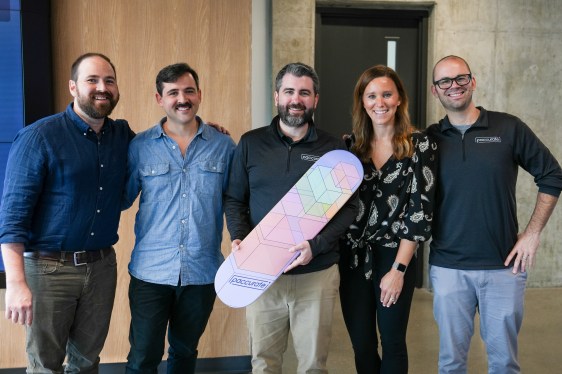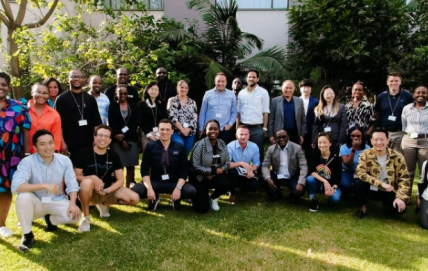Paccurate Helps Companies Reduce Shipping Costs and Environmental Impact by Using Smaller Boxes
Paccurate: Revolutionizing Supply Chain Technology with Cartonization
The Birth of Paccurate
In an industry dominated by legacy players, it’s not uncommon for startups to struggle to make their mark. However, the founders of Paccurate have managed to carve out a niche for themselves through innovative technology and a focus on sustainability. James Malley, co-founder and CEO, jokingly says that once you get into supply chain tech, "the category doesn’t let you back out." He should know – Malley has been in the industry long enough to understand its complexities.
The Problem with Packaging
Ten years ago, Malley and his business partner, Patrick Powers, were working as consultants when they started noticing a recurring issue. Their clients would ask for help reducing empty space in packaging boxes due to newly implemented fees from shippers like FedEx and UPS. The duo couldn’t find reliable software that solved this problem, so they decided to take matters into their own hands.
"We had a fascination with the butterfly effect of this problem area," Malley told TechCrunch. "The more tweaks you make to packaging, the bigger the downstream impact. If you use a 10% smaller box, on average it results in 10% fewer pallets and 10% fewer truck trips. It’s also one of the few areas in supply chain where sustainability and cost savings are the same exact thing."
Developing Paccurate
After years of research and development, Malley and Powers formally launched Paccurate in 2018. The software helps parcel shippers determine the most cost-effective and sustainable way to ship items by taking into account factors such as size, weight, and packaging requirements. Brands can also use Paccurate’s API to build systems themselves.
Cartonization is often embedded into other supply chain software, but Malley notes that many companies don’t trust it due to inaccuracy or a focus on getting as much product into as few boxes as possible, which isn’t always the most sustainable or cost-efficient option.
Paccurate’s Growth and Funding
When Paccurate launched, its founders thought of it as "building a better mouse trap" tech, not necessarily a venture-scalable company. However, the startup changed plans when it was flooded with new and larger customers during the COVID-19 e-commerce boom. To keep up with demand, Paccurate started taking venture funding in 2022, securing an $8.1 million Series A round led by Indianapolis-based VC High Alpha.
Paccurate’s growth has accelerated since then. Last year, the company processed about a million shipments a month; now it handles around a million shipments a day. The startup works with brands like Daily Harvest and Our Place.
Market Saturation
While Paccurate isn’t the only startup building in this area, Malley notes that logistics is still largely dominated by legacy supply chain software players like the Numina Group and Packsize. However, he believes that growth will continue due to several factors:
- Cost Savings: By optimizing packaging and shipping, companies can reduce costs and increase efficiency.
- Sustainability: As consumers become more environmentally conscious, businesses are under pressure to adopt sustainable practices. Paccurate’s technology helps companies achieve this goal.
Future Outlook
As the demand for e-commerce continues to grow, supply chain technology will play an increasingly crucial role in ensuring seamless and efficient delivery of goods. Paccurate is well-positioned to capitalize on this trend, with its innovative cartonization software and focus on sustainability.
Related Startups:
- Inside the wild fall and last-minute revival of Bench, the VC-backed accounting startup that imploded over the holidays
- These fintech companies are hiring in 2025 after a turbulent year
- Generative AI funding reached new heights in 2024
Subscribe to TechCrunch for more startup news and insights:
Get the best of TechCrunch’s coverage every weekday and Sunday









